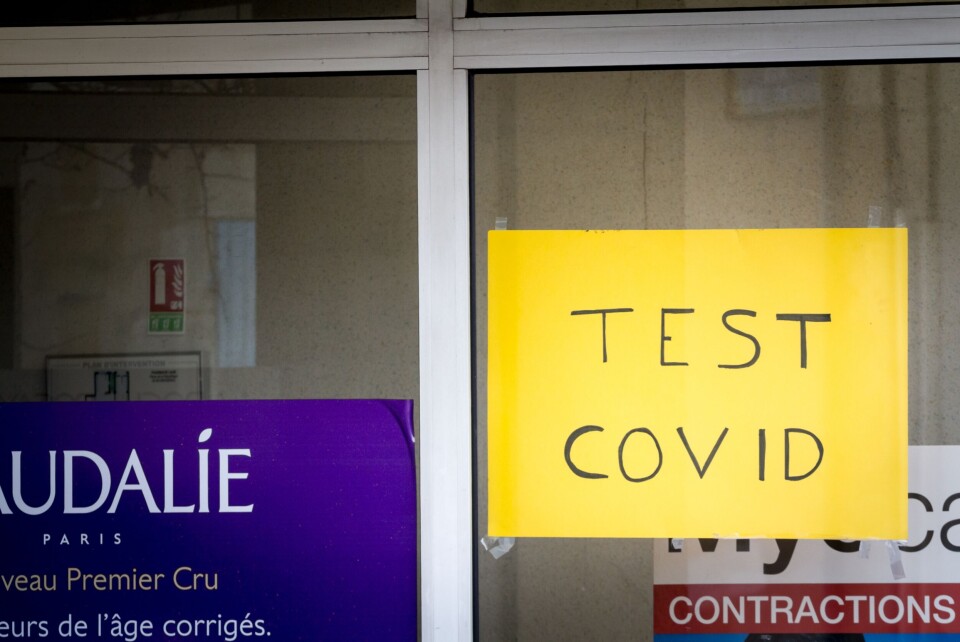-
Key Alpine pass to reopen this summer after €6m repairs
The col d'Allos in Alpes-de-Haute-Provence has been closed since 2023 due to severe weather
-
Why 500,000 people in France will soon be getting a call from health officials
A new campaign will target certain individuals with particular health conditions
-
Receive a book and a rose: France prepares to celebrate its independent bookshops
The 27th edition of the Fête de la librairie indépendante will take place tomorrow (April 26)
Covid: ‘French case numbers could be as high as 1.5 million a day’
Leading expert says current test levels are underestimating the situation and says that a ‘worrying thick fog is forming around the pandemic’ in Europe

The real number of new daily Covid cases in France could be as high as 1.5 million – more than ten times the 135,000 officially recorded – a leading epidemiologist has warned, as testing levels plummet.
Models by the Institut Pasteur had previously suggested that infection levels could have started to lower by now and that France could be “past the peak” of the current wave.
Read more: Is France past the peak of Covid cases? Latest figures
But Professor Antoine Flahault, medical epidemiologist and director of the Institute of Global Health at the University of Geneva, has said that cases are instead stabilising at a high rate, and could be much higher than official figures show.
He criticised the “thick fog that is forming around the pandemic” in Europe, which was obscuring authorities’ view of the situation.
The latest figures from Santé publique France show that daily infection levels are still at around 135,000 per day, but Professor Flahault has said that the real number could be much higher.
He told La Dépêche: “It is very difficult to take an informed look at the health situation in France because the country does not have a reliable health monitoring tool, since the number of tests [being done] has collapsed.
He added that even if official estimates were reliable, the situation is still far from ideal.
“It is estimated that there are not 135,000 cases of Covid-19 every day in France, but nearly one and a half million infections, many of which are asymptomatic or involve people with very few symptoms,” he said.
“It is certain that even with 135,000 reported infections per day...we are dealing with an already very high plateau of infections and therefore an intense circulation of the virus in Europe.”
The professor said that the current situation would likely lead to more hospitalisations and “a high level of deaths”, but in a “more controlled way” due to the high levels of vaccination in the country. This has been shown in other highly-vaccinated countries, such as New Zealand or South Korea, he said.
Yet, Prof Flahault said that it was “worrying” to think that the end of wearing masks in enclosed spaces would be accompanied by increased infections caused by higher viral loads, leading to “more severe forms and more frequent Long Covid”.
Read more: Covid-19: French experts respond to new studies on long-term effects
He added that “our actions and behaviour” could reduce the spread, but that “words are not enough”.
He said: “If the virus is spreading, we should first get informed about it, then understand how dangerous it is, and finally counteract its evolution.”
‘Thick fog’: Covid is ‘not over’
Prof Flahault said that recent rhetoric in Europe had suggested that Covid “was over” and that this had led to a lack of response to the current situation.
He said: “Today, in much of Europe, it has been decided that the pandemic is over, so there is no longer any concern about knowing what is happening to the virus, and therefore about understanding its characteristics in terms of circulation, virulence and response to vaccines.
“A thick fog is forming around the pandemic. This is worrying because we are becoming blind to its evolution, and no longer have informed analyses of the epidemiological situation.”
Related articles
Is France past the peak of Covid cases? Latest figures
Is Covid ‘over’ in France? Doctors disagree and debate
France Covid: fourth vaccine dose now being offered to over-60s
























